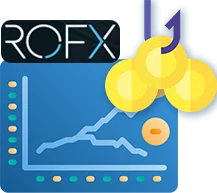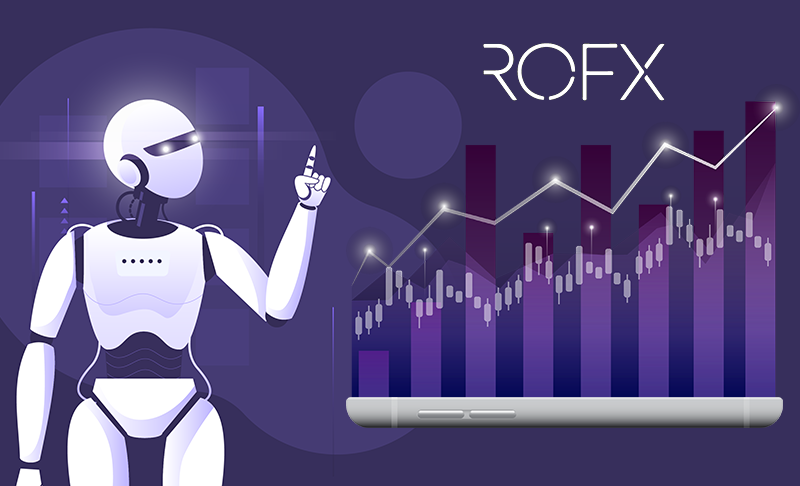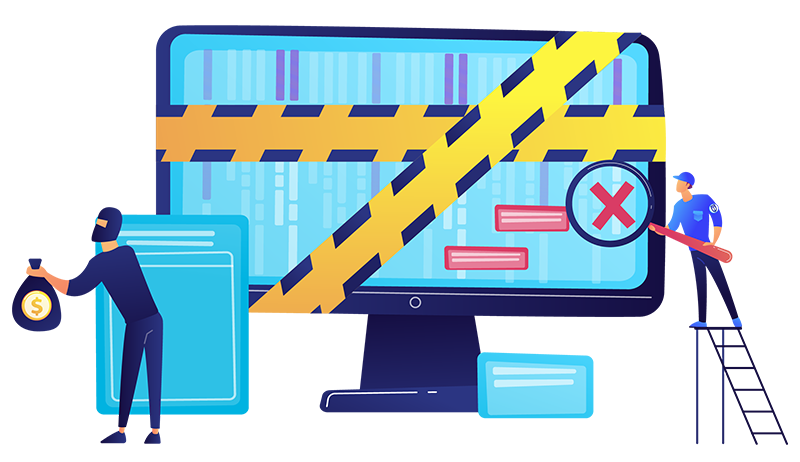Investors take Forex platform ROFX and its founders to court

ROFX was quite well-known back in the day, but is now under fire for being revealed as a scam in 2021. We’re going to discuss how the ROFX plot operated, and how it was eventually found out. If you’re in the mood for a shady story, you are in for a treat.
What is ROFX, anyway?
ROFX was a scam forex robot. People invested in it, but were never able to retrieve their returns.
ROFX stands for “robotically operated foreign exchange.” The company presented itself as a forex automated system, and ran its scheme for nearly four years – from January 2018 until September 2021. The platform used various algorithms to perform trades. Like every other forex robot, transactions were carried out automatically.

The system performed trades on people’s behalf, and ROFX in return gave people shares in the company. Now, you may be thinking, “how is that different from other trading robots?” Well, the issue was that ROFX paid out very little to investors, and didn’t allow withdrawals.
This made their account funds appear larger than they actually were, and created the illusion of stability. The company collected over $58 million from its customers, and then quietly diverted those funds to non-corporate entities in other countries such as Thailand and Poland, as well as the administrators’ own accounts.
How did ROFX reach court?
When people invest, they obviously want to maximize their returns. Instead of giving maximum returns, ROFX was giving peanuts. Eventually, investors’ frustration reached a fever pitch and the case went to court.
On September 29th, 2021, victims of the ROFX scam finally filed a complaint in Florida’s South District Court. They accused ROFX of collecting investments under fraudulent pretenses.

ROFX claimed investors would get daily profits in percentage, but little did investors know, ROFX gave them very little or nothing. The scam was on a global scale, with victims in multiple countries demanding compensation. They wanted the court to apply Federal Rule 23, and they also made a complaint of violations of federal RICO statutes.
The Racketeer Influenced Corrupt Organizations (RICO) Act of 1970 was established to prevent organized crimes in the US. The claimants demanded that the court freeze all ROFX assets and enforce a spoliation order to ensure no important documents were destroyed or went “missing” during the litigation process.
What’s the twist in the story?
Here’s a twist! One of the entities in this story was Notus LLC, a Colorado-based foreign LLC. ROFX deposited funds in Notus, which was led by Borys Konovalenko, a Ukrainian citizen. Borys was a signatory and co-signatory on several American accounts, into which he deposited money fraudulently obtained from ROFX customers’ investments.
Subpoenas revealed this information from various banks and cryptocurrency exchanges via KYC and transaction data. Bank of America and Deutsche Bank responded by providing transaction information. In addition, Bitstamp also jumped in. I will give you a quick summary of the documents each company provided:
From 2019, three accounts sent $561,640 through various transactions, and Borys was the user name for these accounts.. No surprises there! The accounts were in two different locations, with one in Ukraine and the other in Slovenia. BOA acted as a middleman for transactions between the banks. Later, the accounts sent $59,436 through 12 transactions.
They held these accounts in Ukraine, and DB served as a middleman. The total was a whopping $621,076 in illegally obtained funds. There’s more – Borys provided Bitstamp with a contract between himself and Notus, which suggested that Borys was an e-commerce consultant. He did this because Bitstamp requires KYC when you register with them as a business.
The agreement came into effect in January of 2019, with the ending date being January of 2022. In return for his consulting services, Notus would get a fee upon completion of the contract… in the amount of $372,300.
A take on ROFX scam
The ROFX scam worked similarly to other forex scams. Scams like these are plaguing the forex market. I’ll explain how we can identify these scams and therefore avoid fraudulent companies like ROFX.
ROFX stands for “robotically operating the foreign exchange.” This in itself should raise some eyebrows. There are two types of systems that fall in this category; signal selling and robot trading.

With robot trading, a scammer touts its forex trading system, creating hype around it with advertisements like “earn money while sleeping” or “Become profitable today with our tested system.”
Firstly, this process is fully automated. No one is sure if the system has a backtest record, or if it’s been verified. Secondly, when the system isn’t verified, it produces random signals. This is not trading; it’s a gamble.
That is how scammers like ROFX take the money of the investors, and in return, give them nothing. Another red flag for ROFX was how user accounts were managed. ROFX claimed that all users had to do was deposit funds on their website, then sit back and let their daily profits come in.
However, you should know that brokerage firms are market-makers; they make money when you lose trades. Scam platforms like ROFX will do anything to make users lose.
Another alarming factor was ROFX’s regulations. The site mentioned that ROFX had US, UK, and Canada regulations. However, there was no mention of license numbers on the website. ROFX also advertised they had licensed from the British Columbia Securities Commission (BCSC), which is the regulatory body of Canada. However, if you check the BCSC website, ROFX is not listed as being licensed.
- The Story Behind the MBA Forex Scam and Closure
- Intrade.Bar Unleashed: Squeezing Potential in Binary Options Trading
- Features of Islamic account for trading forex and binary options
- CXMARKETS BROKER REVIEW 2024: PROS AND CONS
- How to use the economic calender for binary options trading?
- Have You Heard About Crypto Binary Options?
How to identify such scams?
Unfortunately, scams like ROFX are everywhere. Be smart and check for these red flags when considering a broker platform.
Risk-free investment
Investing is a risky trade. If someone is claiming risk-free opportunities, you should stay away.
High returns
Often, scammers promise high returns – such as claims of 100% or 200% monthly returns. As we know, forex is not a get-rich-quick-scheme. Here’s a quick fact: Warren Buffet makes between 20 and 50% in annual returns. So, high offers should concern you.
Time pressure
If a firm asks you to invest ASAP, then it’s a scam all the way. These firms offer discounts or bonuses to lure you. You get attracted, and feel pressured to immediately sign up. A regulated firm doesn’t make you feel rushed. They know investing isn’t an overnight thing.
Catchy ads
Many scamming platforms use catchy ads to lure you in. They may have sleek videos to trick people, and promises that sound too good to be true. No real broker or a platform would make unrealistic claims or advertise like this.
Lack of Licensure
Lastly, and most importantly, don’t trust licensure statements on the platform’s website at face value; do some research of your own and make sure that the platform is actually registered with the bodies it claims to adhere to, and that it follows those regulations.
- Trader’s Profitability Calculator: Calculate Your Income
- Free Online Interactive Binary Options Charts and Why You Should Use Them
- What does a forex trader do? What is forex trading?
- Review of Best Binary Option Brokers in 2024
- Convert Satoshi To BTC Bitcoin | 100% Free Online Tool
- EXANTE BROKER REVIEW 2024: FEES AND BENEFITS



 Login with Google
Login with Google